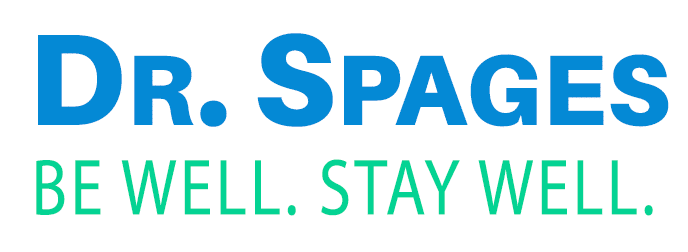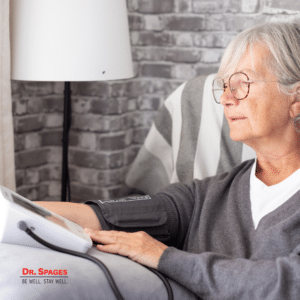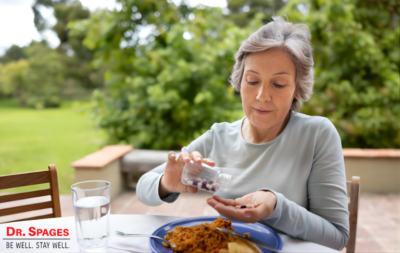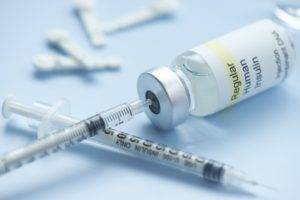
What Diet Does My Patient Do
What Diet Does My Patient Do?
So most people ask, Well, you know, what is it that you’re doing in your office that’s helping type 2 diabetics? And the first question they always ask is, Well, what’s the diet? Right? Like, what’s the magical diet you’re giving people? And I’m about to go over that in this particular video.
So a lot of information is here because people are always told that if you’re a type 2 diabetic, you have to take your medication, right? Which makes sense, right? Because that’s forcing the numbers down for blood sugar. They’re also telling you to watch your diet, and there are a million different options out there, and they also tell you to exercise. So I want to talk about what the diet looks like for patients who are in my office, who I’m working with one-on-one, and who are getting tremendous results, right?
Even today, as I’m filming this video, we have three people who are no longer diabetic. We have two of those people who are no longer even pre-diabetic, and they’re doing it with fewer medications and actually getting better. So let’s actually get into dieting. So hang on. We have a lot of information, but I think you’re really going to like it.
Okay, so people are always looking at things like, Well, what is diet and how important is this for reversing type 2 diabetes? So I always look at diet as the foundation, right? Meaning I’ve never seen it. Despite all the things that are out there, someone reversing their type 2 diabetes would just diet alone. Now, just because you lower your A1C doesn’t mean you reverse the disease process.
And that’s a big misunderstanding that people have. They’re like, Well, I did this diet. I’m staying away from all carbs, all sugar, everything. I’m eating cardboard all day, and my blood sugar levels are better. Yeah, of course, but that doesn’t explain why your blood sugar levels are high.
And also what happens when you do actually eat carbs and things like that? What happens to your blood sugar? You may not have actually fixed anything with this radical diet, right? And I see this all the time. So let’s get into things that obviously are not part of what I do.
Okay? So the first thing is that there’s no fasting. So if you’re a patient in my office, you are not allowed to fast, which includes staying away from food for an extended period of time. There’s no one starving, right? Patients in my office eat a lot of food, but they wind up still being able to lose weight and actually see a better quality of life.
There’s no keto, right? Which is a big fad right now. Everybody’s doing keto. It’s kind of like the flavor of the month sort of diet out there. And there are a lot of gurus who produce keto.
And in keto? I have a whole video on this, but in keto, if you’re eating McDonald’s all day and then you go to keto, that’s actually a good option. But in most cases, keto is not the best thing to do, especially for helping blood sugar levels. No, intermittent fasting Right? So that’s a new thing, too, where everybody’s fasting.
It’s funny; in grad school many years ago, I wound up fasting as well. I used to follow a guy by the name of Paul Bragg. Everybody knows about amino acids and things like that, as well as apple cider vinegar. But he was most likely one of the pioneers in popularising fasting.And he wrote a whole book on it, which is a pretty cool book.
But for a type 2 diabetic, I haven’t seen that benefit over the long term. If anything, I see where it actually breaks the metabolism even worse. Okay? So that is not a part of anything that any patient is supposed to be doing in my office. No smoothies, right?
So there are all these things where you eat smoothies all day and things of that nature. That is certainly not an idea that I’ve seen work, not being a vegan or vegetarian. So I see a lot of patients who are either vegetarian for religious reasons, or they just don’t like animals, or maybe they don’t feel good about a particular type of animal product. But vegans don’t tend to balance their blood sugar levels correctly. So I don’t even admit them as patients because I haven’t seen them do as well as patients who aren’t vegan.
Okay, so that doesn’t mean you eat red meat every day, but it does mean that you have to have some sort of animal protein. Chicken, fish, lamb, turkey, beef, pork, whatever. And there’s a reason for that. Okay, so anyway, not being vegan, and then lastly, nothing crazy. You don’t have to be kangaroos or pythons or anything weird, right?
So most patients that come through my office are shopping at a regular grocery store; if need be, you could buy things online on Amazon or what have you. But it’s just a normal diet. So it’s very simple, right? You eat meats, veggies, and things of that nature, and it makes it really simple. So on the pages of my office, I guess the upper hand they have is that we’re holding them accountable.
We’re watching the foods they’re eating, but additionally, we actually structure it out. So diets do change as someone gets better, and each person is obviously different. Some people need a different structure in their diet at certain points. If you’re on insulin, your diet obviously looks different as well. But the point is, it’s essentially a healthy diet.
That’s how you have to eat, right? So if you eat healthily, then you have a better chance of doing that. So anyway, I hope this answers your question, because a lot of people are like, What’s the magical diet? And there is no magic. I wish I could say, Yeah, there’s some special artichoke that you eat from Australia and a cucumber that you eat from somewhere in Europe, and this is the cure-all, but it really isn’t right.
It takes a little bit more common sense than that. So great. So I’m glad you watched this video. If you would like more information, I even have, like, cookbooks and recipes and things like that on my website, but I would visit www.drjspages.com, and there’s a lot of information there. And I think you’ll get a lot of insight into different diets and recommendations in that sense.
All right, so anyway, I hope you enjoyed this video. Have a good rest of your day and remember, Be well, and stay well. All right, take care. Hey, thanks for watching my video. If you like the content, please like, share it with your friends and family members, and also subscribe to my channel so you get more content just like this.
I’m also giving you a free ebook. All you have to do is just click the link below to get instant access to that. Remember, be well, stay well, and I’ll see you on the next video. Take care.






